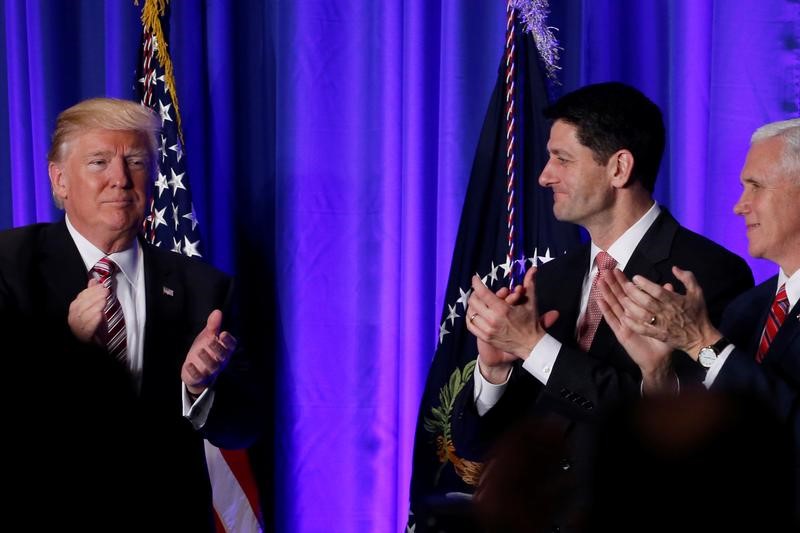By Lisa Lambert
WASHINGTON (Reuters) - Republicans pressed ahead in their deregulatory push on Tuesday, with the U.S. House of Representatives Rules Committee officially adding a regulation on methane and one intended to root out pay discrimination to the list of rules the whole chamber will vote to kill on Wednesday.
On Monday, the committee sent three other recently enacted rules on the environment, corruption and guns to the full House to axe under the Congressional Review Act, which has only been used effectively once, in 2001.
The Republican-controlled House is expected to vote to overturn all five regulations on Wednesday, and then hand them off to the Senate.
Agencies cannot create a new rule to replace any part of an overturned regulation, and Democrats at Tuesday's committee hearing argued that House Republicans were closing off the possibility of enacting regulations that could be needed in the future.
They also pressed for more time to consider rolling back regulations that often took months and years to craft.
"What we've been doing today and yesterday ... I would characterize as mindless legislating," said Representative Jim McGovern, a Democrat from Massachusetts.
"I worry that this whole process is going to subject a lot of vulnerable people, and a lot of working people, as well as our environment to some pretty dark consequences."
New York's Louise Slaughter, the committee's senior Democrat, while talking about the methane rule during the one-hour hearing bluntly said: "I disagree wholeheartedly with what you're doing."
Democrats, though, have little power to stop the overturning of regulations. Only simple majorities in both chambers are needed to kill a rule. In the past, Republicans' nullification attempts were met with veto threats by former president Barack Obama, a Democrat. Now, a fellow Republican occupies the White House, President Donald Trump.
Critics of the methane rule say the regulation, which covers emissions from oil and gas operations on federal and Indian land, is not necessary. They cast it as a duplicative regulation that usurps state rights and slows down the distribution of natural gas through excessive red tape.
Supporters, meanwhile, say that the rule keeps oil and gas companies from polluting the environment, brings in royalties to the federal government, and reduces wasted methane.

Those wanting to see the pay-discrimination rule overturned have similar complaints, saying that other rules already cover the area and that requiring federal contractors to collect information on their employees will be expensive and time-consuming.